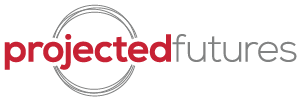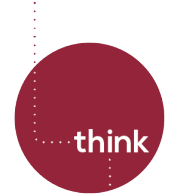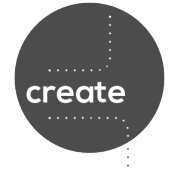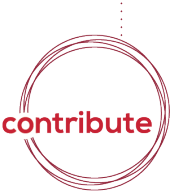Projected Futures X VOLTAGE: Experimental
Science Journalism Studies
Join our 3-credit international graduate summer school where students will participate in a collaborative, experimental challenge asking:
What plausible future do you project for science journalism?
Overview
Projected Futures is a 3-credit intensive and experiential summer school that will challenge participants to rethink how science is communicated with society. Graduate students will be exposed to the foundations of evidence-based science journalism and then asked to experiment to create new forms of scientific storytelling.
The course welcomes local and international graduate students from diverse educational backgrounds. It runs in English, and does not require prior experience or prerequisites to enroll.
Projected Futures 9 dates: July 27 to 31, 2026.
Deadline to apply: Monday, March 23, 2026 at 11:59 p.m.
Academic leader: Dr. David Secko, david.secko@concordia.ca
A unique and future-forward experience
A first of its kind in the Department of Journalism, Projected Futures is an international graduate summer course designed with the World Federation of Science Journalists and the Science Writers and Communicators of Canada. Student work will be presented at a Science Journalism Summit at the end of the course.
A diverse student roster
We welcome local, national and international graduate students from any discipline with an interest in new forms of scientific storytelling and interdisciplinary experimentation.
Top-notch lecturers
The school's lecturers have included award-winning, leading science journalists, science communicators, journalism educators and faculty members in the Department of Journalism.
Our summer school has welcomed, among others:
- Hannah Hoag (Health, Science & Climate, CBC)
- Roxanne Khamsi (Independent Science Journalist)
- Apoorva Mandavilli (Science & Global Health, The New York Times)
- Jennifer Gardy (Bill and Melinda Gates Foundation)
- Ivan Semeniuk (Science, The Globe and Mail)
- Andre Picard (Health, The Globe and Mail)
- Pauline Dakin (Health, CBC)
- Vik Adhopia (Health, CBC)
- Laura Helmuth (Scientific American)

Be one of the first to join a new community of students interested in fresh forms of science journalism.

Work with scholars, journalists and students to articulate, debate and project your future science stories.

Share your experiments with the science journalism community.

What to expect
A blended course structure
Projected Futures is a unique, blended course that features synchronous in-person workshops and asynchronous online activities.
During the in-person week, the first lecture of each day begins at 9 a.m. EST. Students will have a lunch break from noon to 1 p.m. and have a second class from 1 p.m. to 4 p.m. Classes are held at the Loyola Campus in the CJ building, room 3.306.
Students will complete the following during the course:
July 22 - 26
Convene online to explore the foundations of evidence-based science journalism and to get to know each other (mostly asynchronous).
July 28 - August 1
Synchronous in-person classes begin, which examine a mixture of:
- Journalism skills workshops for multimedia platforms (audio, video, photo, social media);
- Theoretical examinations of models of science journalism; and
- Interdisciplinary group-based mapping of science and society connections.
July 31
Teams are issued an all-day collaborative experimental challenge. The day ends with a public lecture and reception with a noted science journalist.
August 1
In the morning, teams present their work – a projected future – at the Science Journalism Educator Summit, an event dedicated to improving and shaping next-generation science journalism education.
August 4 - 8
Course debrief online and the creation of an alumni network (mostly asynchronous).
The school's faculty include leading science journalists and journalism educators.
Lecturers from 2024
- Roxanne Khamsi - award-winning journalist whose articles have appeared in publications such as The Economist, WIRED magazine and The New York Times Magazine.
- Hannah Hoag - journalist and editor based in Toronto. She works in the health, science, and climate units at the CBC.
- Chloe Ranaldi - news reporter at CBC Montreal who regularly covers social issues such as immigration, healthcare, and senior rights.
Faculty
- David Secko (Professor, Department of Journalism) - science journalism scholar and leader of the Concordia Science Journalism Project, previously a science journalist
- Cristina Sanza (Projected Futures coordinator, Department of Journalism) - digital journalism instructor, writing coach, and associate editor of the journalism department’s magazine.
- Andrea Hunter (Chair, Department of Journalism) - associate professor, journalism and sociology researcher, and former CBC radio journalist.
What our students say
How to apply
Admission is competitive and based on demonstrating your interest in the fundamentals of science journalism and new forms of scientific storytelling, as well as your past accomplishments.
Interested students are invited to send the following in a PDF document:
- A letter of intent (500 words): This letter should cover your background, current program of study, motivation for attending the school, academic/professional interests and any other relevant information.
- A current Curriculum Vitae (CV)
- Optional: Up to two samples of any journalism, communication or media-related work.
Please send the application and any program-related questions to: david.secko@concordia.ca.
Tuition & fees
For this 3 credit graduate course, please review the total cost estimate based on your residency situation in Canada.
Please note that International students must purchase Health Insurance through Concordia’s International Student Office (ISO).
Tuition Waiver Awards
Top applicants are eligible for tuition waiver awards that will cover tuition costs and administrative fees associated with attending the International Graduate Summer School.
These awards will take into account your course of study, past accomplishments, particular career and/or research directions, as well as financial need if your home institution, affiliated research center, department or supervisor cannot support your travel or registration costs.
Accommodations and Food
Students living outside Montreal are also eligible to apply to receive free accommodation at Concordia's Grey Nun's Residence. Priority will be given to international students and spaces are limited.
Breakfasts and lunches are included during the week, with the exception of Thursday lunch. Dinners will not be provided.
Travel & transport
Students are responsible for their own transportation to and from Montreal. However, they have access to the free Concordia shuttle to travel from the downtown residence to the Loyola Campus.
Frequently asked questions (FAQ)
Yes, but if you are not registered at Concordia, contact us and we will work with you to provide you with all the information your home institution requires.
Yes! Please contact david.secko@concordia.ca for more information about how to proceed.
Yes, you can. While designed for graduate students to enhance their studies and communication skills, those not in a graduate program can apply as non-students.
Students will need access to the internet, a laptop or computer with audio and video capabilities, and a cell phone that is able to capture audio, photos and videos.
Contact us
Please get in touch if you have questions about the program.
Program Director
David Secko
david.secko@concordia.ca
514-848-2424 ext. 5175
Program Coordinator
Cristina Sanza
cristina.sanza@concordia.ca

